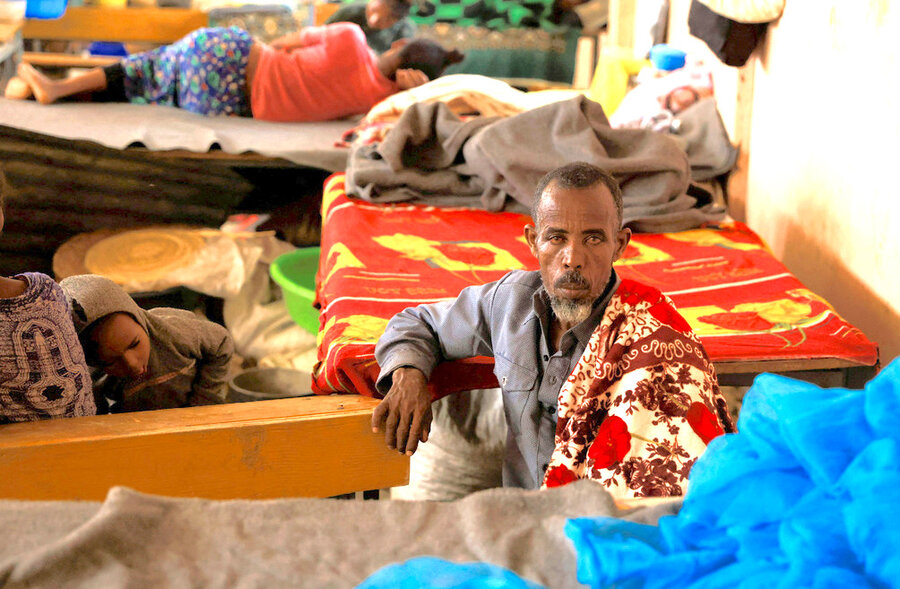A mind for peace in Africa
Loading...
In recent years, Africa seems to have reverted to a tattered script of military coups, corruption, and civil wars. Yet that troubled surface masks a deeper ferment. From one society to another, Africans are charting pathways out of intractable conflict through the gradual, granular work of rebuilding trust through the practice of transitional justice.
“Transitional justice requires people coming together to address the legacies of cycles of violence, putting victims at the center and their dignity first,” notes Anna Myriam Roccatello, deputy executive director of the International Center for Transitional Justice.
Broadly put, transitional justice seeks to rebuild post-conflict societies through a restoration of the rule of law, reconciliation based on disclosure and forgiveness, and restitution for victims. The idea itself, of course, isn’t new. South Africa, Sierra Leone, and Rwanda launched healing models of truth-telling and forgiveness nearly three decades ago. The continent’s more recent examples, however, show how determined ordinary Africans are to create a more peaceful and inclusive future. In 2020, the African Union adopted a formal transitional justice framework for its member states. Last month, it launched a new three-year project with the European Union to support African states seeking to implement the idea.
“We have no other choice than to push and promote transitional justice,” stated Ambassador Bankole Adeoye, AU commissioner for political affairs, peace, and security. He placed a special emphasis on the role of women and youth in post-conflict healing.
Some countries have been at it for years. Gambia, in West Africa, launched a truth commission in 2017 to investigate human rights abuses during two decades of brutal dictatorship following a military coup in 1994. That panel was just a starting point. Earlier this month, legislators passed two bills – one establishing a reparations fund for victims, another banning individuals found to have committed atrocities from holding public office.
Other countries are just setting out. In Ethiopia, the federal government is locked in a debate with various ethnic groups over how to create a common narrative of past conflicts – including the two-year war it ended a year ago with rebellious Tigrayan militias. That dispute hasn’t stopped civil society groups from holding local reconciliation workshops across the country.
A comprehensive poll published in Foreign Affairs this month captured how Ethiopians seek to break cycles of violence reaching back decades. It showed a strong preference for local solutions. Of more than 6,000 people questioned, 41% favored seeking justice through local courts rather than through international tribunals, and 80% backed traditional forms of dialogue and reconciliation to address legacies of violence.
“Regardless of the Ethiopian government’s policy choices,” the survey’s authors wrote, “it will be critical to identify possible fault lines and anticipate unintended consequences so that transitional justice can be survivor-centered, credible, impartial, and effective. Accomplishing this will be no small challenge. But it can be done.”
Three decades of democratization has nourished the democracy aspirations of a younger generation of Africans. In like manner, the continent’s laboratories of transitional justice are deepening a mindset of peace based on justice and reconciliation.







